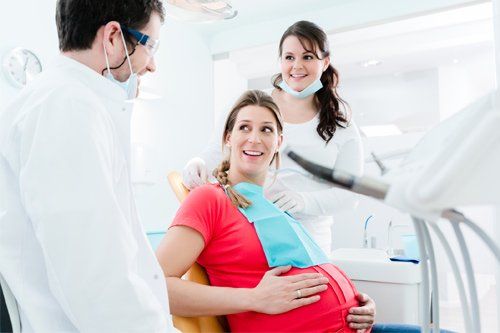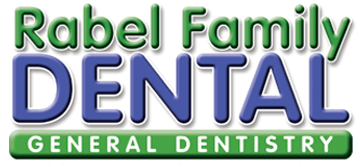Pregnancy, Gum Disease, Tumors, and Tooth Decay

Finding out that you're pregnant is so exciting, but in amongst the excitement, you're sure to also be surprised by some of the unexpected changes going on in your body. Women frequently talk about the weight gain, nausea, and tender breasts associated with pregnancy — but they rarely mention the oral problems so prevalent in pregnant women.
If you are experiencing some changes in your mouth during pregnancy, you're not alone. Hormonal changes affect the teeth and gums in ways you never would have imagined. Thankfully, there are easy ways to prevent and manage each of the three most common dental problems among pregnant women.
1. Gum Disease
Early-stage gum disease, known as gingivitis, occurs in about 40 percentof pregnant women and can progress to a more serious form of gum disease, called periodontitis, if not treated well. Luckily, the symptoms of gingivitis are easy to recognize:
- Bleeding from the gums when brushing
- Sensitivity of the gums
- Redness of the gums
- Swelling of the gums
Gum disease is caused by bacteria, and the increased levels of progesterone in your body during pregnancy make it more difficult for your body to fight off those bacteria. You can help by keeping your teeth and gums very clean. Spend a little longer brushing, and really focus on the gum line. Floss every day, and start using an antimicrobial mouthwash after brushing.
Contrary to what well-meaning people may have told you, you can absolutely visit your dentist for a cleaning appointment while pregnant — and you should. A professional cleaning removes tartar from along the gum line, which goes a long way in fighting gum disease.
2. Tooth Decay
Pregnant ladies are also at an increased risk of tooth decay because of the effects of progesterone on the immune system. But tooth decay is also a concern because of morning sickness. Stomach contents are very acidic. They may have a pH as low as 1.5, whereas a healthy mouth has a pH of around 7.1 to 7.5. Frequent exposure to stomach contents during vomiting can weaken your tooth enamel and make decay more likely.
As with gum disease, you can help fight tooth decay with proper brushing and flossing. But you should follow a few other tips, too, especially if you suffer from morning sickness:
- Rinse your mouth with water after vomiting.
- Wait 30 minutes after vomiting to brush your teeth so that you don't further damage the weakened enamel.
- Chew sugar-free gum during the day to boost saliva production and balance out the pH inside your mouth.
Talk to your doctor for tips and advice to reduce morning sickness and nausea. Many women find that eating small amounts more often and eating something small before they get out of bed help.
3. Pregnancy Tumors
The word tumor makes this condition sound a lot more serious than it really is. Pregnancy tumors are benign tumors — they are not cancerous — and they show up on the gums of up to 5 percentof pregnant women. Pregnancy tumors are generally raised, well-defined nodules between 0.5 and 2.5 centimeters in size. Some women find them painful; others don't notice any pain.
Researchers are not sure what causes pregnancy tumors, but they are thought to be related to changes in hormone levels. Poor oral hygiene and gingivitis put you at a higher risk for pregnancy tumors, so as emphasized above, taking good care of your teeth and gums during pregnancy is paramount.
If you do notice what you think to be a pregnancy tumor on your gums, bring it to the attention of your dentist. They can confirm that the tumor is not something more sinister. Many pregnancy tumors shrink on their own after a woman gives birth, but if yours linger or are painful, you can have them excised — likely via laser or cryosurgery.
If you are struggling with gingivitis, tooth decay, or tumors during pregnancy, make an appointment with Rabel Family Dental General Dentistry. What you're experiencing is very common, and we can recommend treatments that are effective and safe for both you and your baby.






